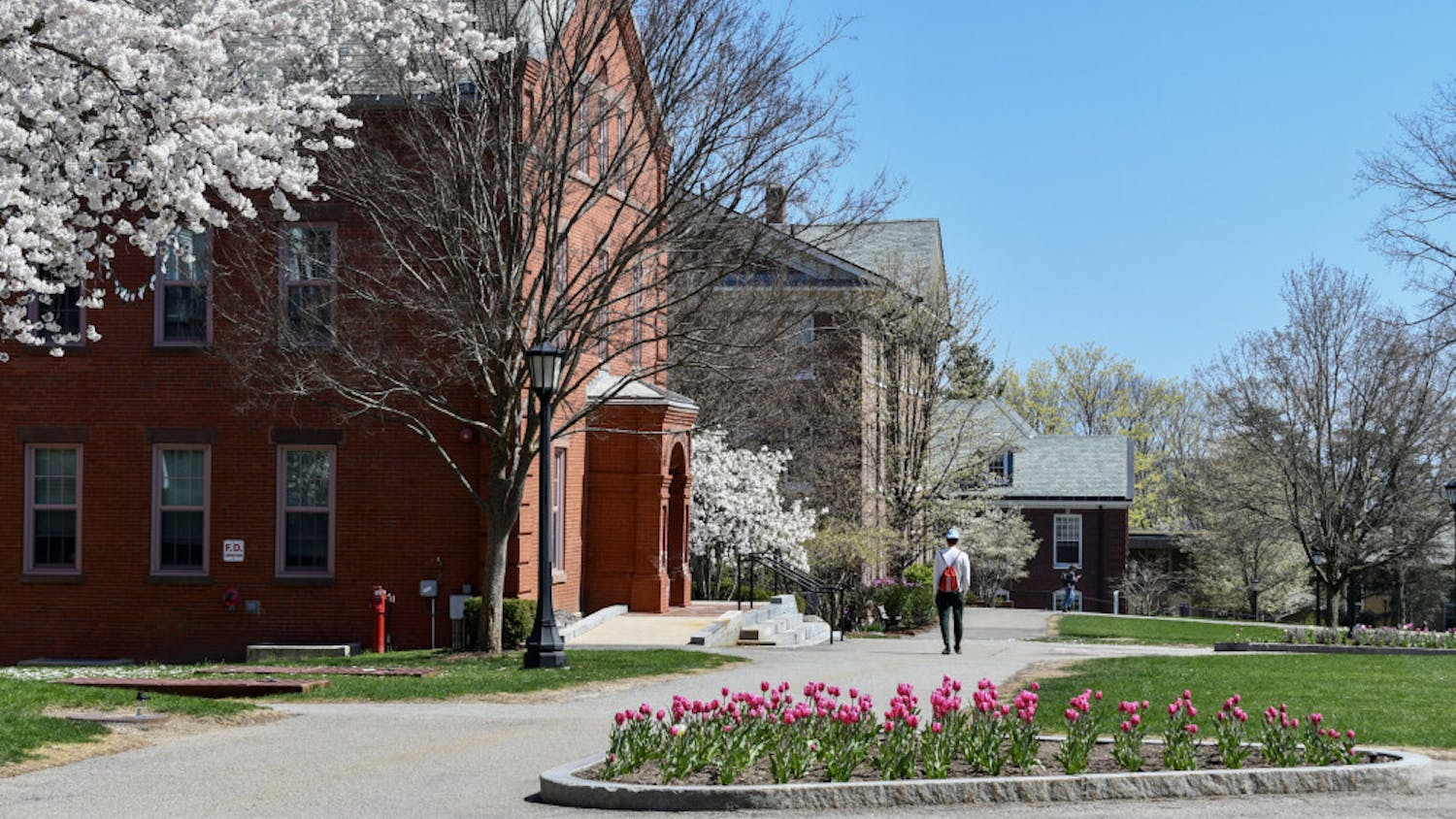The Tufts University part-time lecturers union, represented by SEIU Local 509, is currently engaged in a pay negotiation process on behalf of part-time lecturers who work at the School of the Museum of Fine Arts.
The union has been negotiating on behalf of part-time lecturers in the School of Arts and Sciences since fall 2013 and recently secured a new five-year contract with the school which will apply to part-time faculty until 2027. However, due to a planned change in the way courses are scheduled, pay for SMFA lecturers was tabled from the general contract to a separate negotiation, which is currently underway.
According to John Ros, SMFA lecturer and union negotiator, the union is focusing specifically on achieving higher pay, which has presented a challenge and an opportunity.
“It’s easier in that the conversation is very direct,” they said, “but it’s maybe harder because there’s less bargaining chips. … This is one conversation that we’re having, and it’s proven quite difficult.”
In a statement to the Daily, Patrick Collins, executive director of media relations at Tufts, said the university is “committed to constructive engagement at the bargaining table and fair treatment of all Tufts employees.”
“We’re looking forward to continued discussions with the union and good faith negotiations on wages and other issues,” Collins wrote. “Out of respect for the union and the negotiation process, we think it is appropriate to limit our discussion of specific proposals to the bargaining table.”
SMFA courses were previously broken up into either three- or six-hour periods but were restructured to last a uniform five hours starting in fall 2023. SMFA part-time lecturers receive payment based on courses taught, hence the need to renegotiate a new payment structure for this specific issue.
Tufts began negotiations with the first offer of an overall 16.6% pay cut, excluding compensation for once-mandatory review boards from the base salary.
Ros said the university used the restructuring of course length as an excuse to cut pay. To make up the difference, Tufts offered a flat fee for lecturers who participated in up to five review boards — the final assessments for SMFA students — on a per-review board basis. This reduced the lecturers’ pay cut from 16.6% to 7.7–9.8%, according to Ros.
However, historically the base pay rate has been determined by a step system, where every four years the lecturers move up a step in the pay scale. The addition of the flat rate pay for the review boards was the same for all lecturers regardless of time served, which led to an increased pay cut (9.8% versus 7.7%) for lecturers who had taught at SMFA the longest.
“We were appalled,” Ros said. “We told them, ‘Wait a second, you’re actually saying that the people who have given you the longest service are actually going to make even less money.’ That became a huge issue.”
In the opinion of SMFA part-time lecturer Lizi Brown, the offers made by Tufts signify a lack of respect.
“We expect respectful and thoughtful negotiations with Tufts. We’re very disappointed that we haven’t seen this in our talks this spring,” Brown wrote in an email to the Daily. “An example: both of their offers have been regressive, involving pay cuts. They also don’t recognize all the work Part Time Faculty do, minimizing the efforts of SMFA Faculty, while at the same time increasing our reviewboard responsibilities.”
Ros said that not all professors would be able to participate in review boards, meaning that they would receive the larger pay cut. This emphasis on review board participation for a competitive salary and the pay cut disparity based on time served gave negotiators a lot to address heading into their April 26 meeting.
Ros said the first offer the union made was to couple the review board and course pay into a comprehensive single salary for the part-time lecturers that was “stepped” appropriately by years served at the SMFA.
“We wanted to keep review boards as part of our per-course salary,” they said, “but [Tufts] came back rejecting our proposal. … They are very serious about wanting to uncouple review boards.”
Tufts held firm on a 16.6% pay decrease for the base per-course pay of lecturers and changed the review board rate from a flat to a stepped model, where those who had taught for longer would receive a higher payment per review board completed, addressing the union’s previous complaint. However, to make up the 16.6% difference and avoid a pay cut, lecturers would have to complete eight review boards rather than five, which, according to Ros, would be impossible for all part-time lecturers to do, as there simply “aren’t enough review boards to dole out.”
While disappointed about failing to secure the coupling of the review board and course pay, Ros made clear what their bargaining unit wanted at the end of the day.
“We need to see a salary increase, is our bottom line. Period,” they said, “regardless of what that structure looks like.”
Ros also emphasized the massive amounts of uncompensated labor that they and other part-time lecturers are forced to complete, including preparing for the negotiations.
“Part-time lecturers … created a system [ahead of recent negotiations] that said, ‘This is how we could do review work,’” Ros said. “As part-time lecturers, all the part-time faculty on our side of the table are volunteering our time to be in these meetings. All the Tufts admin are getting paid to be at that meeting, and the fact we have to correct these issues that shouldn’t be our issues to begin with is really telling about what’s going on.”






